يحاول ذهب - حر
Spangles: a personal overview
December 24, 2019
|Cage & Aviary Birds
FRED WRIGHT relates a budgie story of over-exploitation, consequent problems and abundant potential for the future

SPANGLES first appeared in New Zealand during the late 1970s and then soon after that in Australia. Before long they were brought to Europe by Rolf Christen and they went to Reinhard Molkentin in Germany.
The history of the early days of spangles seems to be viewed through rose-tinted glasses by various people who wish to make claims. The fact is that it was in Reinhard’s birdroom that they were paired with his best birds – and it was he who made massive steps forward with the variety.
With spangles, the vital fact to remember is that they were paired with his best birds and it’s the pedigree of those top-quality birds that sit behind all spangles. Reinhard and Jo Mannes brought the first spangles to the UK and placed them in the hands of Doug Sadler and Alf Ormerod. Alf spotted the opportunity to make money and accordingly mass-produced them, selling everything he could breed for £100 – a lot of money at that time.
It’s easy to look back and see what could have gone wrong, but the fact is that the spangles were paired to absolutely any colour and variety. The initial birds were normal spangles and the markings – spots and wing markings – were characteristic. There were clearly defined spangle markings on the wings and the spots were bull’s-eye spots: clear in the middle, black on the outside. There is little doubt that it was the pairing of the variety into cinnamons, opalines and others that has decimated the spangle markings.
هذه القصة من طبعة December 24, 2019 من Cage & Aviary Birds.
اشترك في Magzter GOLD للوصول إلى آلاف القصص المتميزة المنسقة، وأكثر من 9000 مجلة وصحيفة.
هل أنت مشترك بالفعل؟ تسجيل الدخول
المزيد من القصص من Cage & Aviary Birds
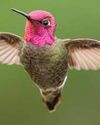
Cage & Aviary Birds
The World's Best-Known Hummingbird?
Intensively studied, the gem-like Anna’s hummingbird is a welcome visitor to the gardens of America’s most populous state: California. Bill Naylor investigates its life history
5 mins
December 18, 2019
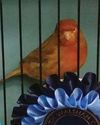
Cage & Aviary Birds
The charm of the English Cinnamon
Despite its long and complicated history, the true Cinnamon canary is still with us – in the hands of a tiny group of breeders. DONALD SKINNER-REID reckons it deserves wider appreciation
4 mins
December 24, 2019
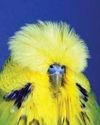
Cage & Aviary Birds
Spangles: a personal overview
FRED WRIGHT relates a budgie story of over-exploitation, consequent problems and abundant potential for the future
4 mins
December 24, 2019

Cage & Aviary Birds
New converts to old breeds
Old and rare canaries have a reputation for adding fresh interest and challenge to the hobby. PETE HOOK and NICK JOY agree, and explain the birds’ charm to Dave Brown
3 mins
December 24, 2019

Cage & Aviary Birds
Themed aviaries are a hit with the public at annual Stafford show
DECORATIVE AVIARY DISPLAYS from a CBS and an online bird keeping advice group were voted in the top three by visitors for the inaugural Stafford Aviary Competition.
1 mins
December 18, 2019
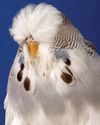
Cage & Aviary Birds
Pieds with potential
More than just a lesser variety, the dominant pied will introduce challenge and change into most studs, reckons CLIVE WAKEMAN. Here he discusses pairings to try and others to avoid
3 mins
December 18, 2019
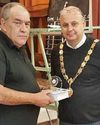
Cage & Aviary Birds
Club News
Welcome to the club and show pages – the bit that’s all about you Results: convention, specialist & rare and Breeder of the Year
1 min
December 18, 2019
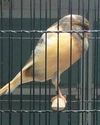
Cage & Aviary Birds
Canaries Month by Month:
With Christmas around the corner, BRIAN KEENAN is well into his winter programme, and reckons he might deserve a nice outcross
4 mins
December 18, 2019
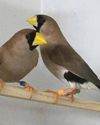
Cage & Aviary Birds
Smart Choice, Docile Nature
Dave Brown welcomes the masked grassfinch to his birdroom and shares advice on this lovely Australian species
3 mins
December 04, 2019
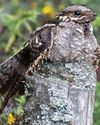
Cage & Aviary Birds
The truth about the ‘flying toad'
Odd local names and weird superstitions can’t hide the beauty and elegance of the nightjar, a species that has made a fascinating subject in a few zoo collections, reveals BILL NAYLOR
5 mins
December 04, 2019
Translate
Change font size
